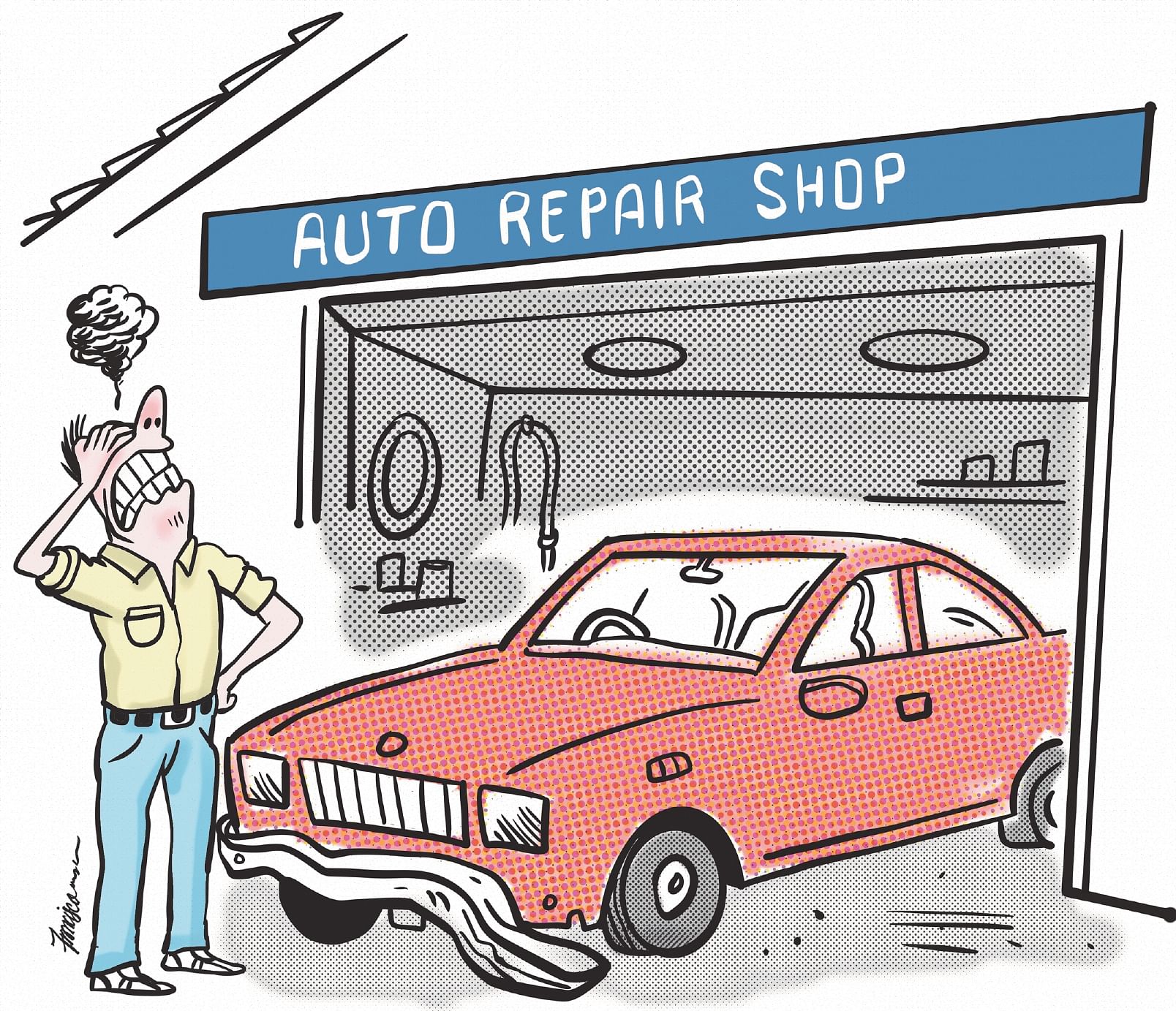'There is a loophole in the system': Car accident victim finds himself unable to claim insurance
Sign up now: Get ST's newsletters delivered to your inbox

Mr Lim Gee Wee has not been able to recover the money for his dented boot from the other driver's insurer as the other driver has refused to report the incident to his company.
PHOTO: LIM GEE WEE
SINGAPORE - Three months after another car rear-ended his vehicle in Toh Yi Drive, Mr Lim Gee Wee, 44, still has not had the dented boot fixed.
Two motor workshops he consulted have quoted him the same price - $5,000 to $10,000 for repairs. But both said they will not be able to recover the money from the other party's insurer, as the motorist has repeatedly refused to report the incident to his insurance company despite many notices sent to him.
The workshops said Mr Lim would have to pay out of his own pocket or claim from his own insurer, an option he fears could increase his annual insurance premium.
"I believe there is a loophole in the system," the sales manager told The Straits Times. "How can I be left footing the bill because the other party chooses not to report it?"
To get compensation, he believes he will have to embark on a potentially expensive legal suit. "Now that I know this is the case, I might just not report any accident to my insurer in future even if I'm at fault, since people can get away with it."
But is there really a loophole and can motorists get away with not reporting accidents to their insurers?
Insurance agents and lawyers say "no".
To drive on the road, all motorists are required by law to have insurance.
In the event of an accident, insurers require motorists to report the incident to them within 24 hours. This is regardless of whether the accident is negligible or severe, and even if both parties have agreed to a private settlement, so that motorists can be protected if the other party still files a claim.
In cases of injury or death, a police report must also be made. Failure to do so is an offence.
General Insurance Association of Singapore (GIA) chief executive Ho Kai Weng said most motorists know they must report all accidents in a timely manner to their insurance companies, and that reporting will not automatically lead to them forfeiting their no-claim discount.
More than 90 per cent of motorists involved in the more than 120,000 cases of accidents reported annually file the required reports in a timely manner, he said.

In the event of one party choosing to make claims, insurance companies then do the necessary investigations to establish liability when deciding whether to penalise the insured motorist.
"In cases of late or no reports, the insured motorist scores an own goal," Mr Ho said. "The practical option is for claimants to make a claim against their own comprehensive motor insurance policies. They benefit from having their vehicle repaired quickly and leave it to their insurer to take on the effort of resolving the liability with the other party.
"If the claimant's insurer considers that its insured driver is not at fault in the accident, his annual premium should not be affected just because he reported an accident."
Mr Lim said he reported the accident, which happened last October, to his insurance company within 24 hours the next day, but chose to take his vehicle to the motor workshops instead of leaving it in the hands of his insurer as motor workshops usually take on open-and-shut cases.
He thought they would take care of recovering the costs - usually inflated - from the other party's insurer, without sparking off an investigation that would take time to conclude and which could risk his annual premium.
But the other party not reporting the incident resulted in the other party's insurer repudiating liability, and the motor workshops realised they would have to engage in legal action against the motorist to recover the costs.
"They told me they were not prepared to do that," Mr Lim said. "They said they were small workshops and the legal process would take too long."
Mr Lim said he subsequently went to his insurer, which said it would not fight the case on his behalf without giving a reason.

The Straits Times understands this is unusual and has contacted Mr Lim's insurer to find out more.
When asked what happens if a motorist refuses to make an insurance report, Mr Ho said the motorist then has to personally deal with all claims and costs sought from him, including legal ones if the aggrieved party chooses to hire a lawyer.
After a weeks-long process where the insurance company, and later the Traffic Police, send the motorist several notices to no avail, the insurance company can decide to terminate his insurance, refuse to renew it later when the insured period is up, or reduce his no-claim discount.
But more can be done to punish the very small number of irresponsible motorists who shirk their responsibilities, Mr Ho acknowledged.
In practice, the Traffic Police are unlikely to investigate and take firm action against cases that do not involve injury or death. Non-reporting also has not been made an offence, with no fines or demerit points issued.
The Straits Times understands from several insurance players that an individual's history of non-reporting is also not yet well flagged, and insurance companies may not be able to track this if the offending motorist switches insurers.
Mr Simon Goh, head of insurance and reinsurance practice at law firm Rajah and Tann, said legal fees for motor accident claims such as Mr Lim's should not be too high, should he choose to pursue legal action against the motorist himself.
The industry and the courts have sought, over the years, to simplify and expedite the settlement of such small-claims disputes, and ST understands from lawyers that if a claim is settled without the need for legal writs, costs should be less than $1,000.
Mr Goh also referred motorists to the Financial Industry Disputes Resolution Centre (Fidrec), where individuals can file a complaint against an insurance company free of charge without paying legal fees for non-injury motor claims below $3,000.
No lawyers are involved in the independent adjudication process, and if a consumer accepts a Fidrec ruling, which usually takes three months, it is binding upon the insurance company.
However, most motor claims today easily exceed $3,000. When told of his legal options, Mr Lim said: " I am able to prove that I am 100 per cent right, but I still feel like I'm on the losing end, especially if he has no money. It all depends on luck, and it takes too long."


